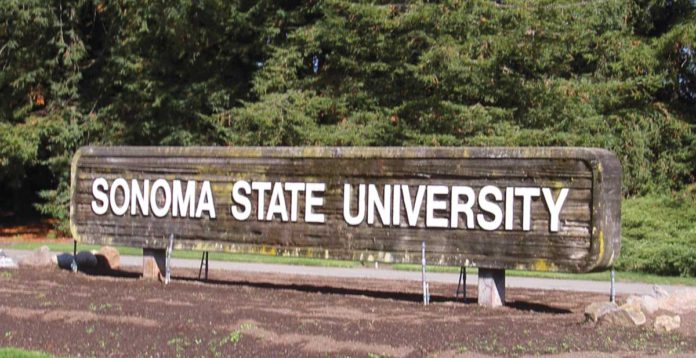CSU’s ‘indirect’ money in Israel less than 1% of holdings
The California State University system disclosed last week that it does not have direct investments in any companies that might profit from Israel’s occupation of the Palestinian territories and the war in Gaza but has a small amount of indirect holdings through mutual funds.
This disclosure was made in response to demands by pro-Palestinian student and faculty protests on campuses for CSU to divest from any such companies.
However, CSU officials again said they will not sell off any of that indirect investment, echoing the position of the University of California. “The CSU does not intend to alter existing investment policies related to Israel,” according to a statement on the CSU website.
The 23-campus university system had disclosed in April it does not invest in “direct stocks or equities in any companies,” regardless of location.
Officials last week offered additional details about indirect investments in Israel-based firms via holdings in mutual funds that include equities and corporate bonds. Those total $3.2 million, or 0.04%, of all CSU investments, according to a report discussed during last week’s systemwide board of trustees meeting.
The list of funds CSU invests in was included in a report to the trustees. However, that did not include holdings that individual campuses and related foundations might own separately from the central system. A portal on the university system’s website details revenue and other financial details on each campus.
A newly published page on CSU’s website says: “Consistent with their legal structures, CSU investments and auxiliary investments are distinct from one another.”
But given a recent controversy at Sonoma State and the retirement of its president over his promise to discuss possible divestment from firms with ties to Israel, it seems unlikely that any campus would take such an action now.
Students have also called on the university to divest from all defense and aerospace investments, but officials have refused to do so. CSU has direct ownership of $20.8 million in such bonds and some exposure via mutual funds, totaling $30.6 million of the system’s investments. In total, defense and aerospace investments make up 0.62% of the CSU system’s central investment portfolio.
CSU chancellor Mildred Garcia, during her address to the board, made no direct mention of the calls for divestment. But she did urge any protests to be peaceful and to not harm other members of the CSU communities. “The CSU stands unequivocally against acts of hatred, violence, injustice, discrimination, and more specifically antisemitism and Islamophobia,” Garcia said.
University campuses nationwide have struggled with how to handle protests in recent weeks, actions mainly against Israel’s invasion of Gaza. Israel’s bombardment of the Hamas-controlled Gaza followed the Oct. 7 Hamas attack on Israel, which killed about 1,200 people and resulted in hundreds of hostages being taken. Since then, more than 35,000 people in Gaza have been killed, mostly civilians, and thousands more have been injured, according to Palestinian health authorities.
The new CSU webpage also details the university’s response to common questions regarding investments in both Israel and the defense and aerospace industries. But one trustee questioned the focus on Israel.
“I’m not comfortable singling out Israel on a website without singling out Sudan and Russia,” said trustee Leslie Gilbert-Lurie, regarding the information on the webpage. “I’m on the side of human rights and following countries that follow international human rights law.”
Among the individual CSU campuses, Sacramento State has disclosed that it has no direct investments in assets that might violate its policies forbidding “direct investments in corporations and funds that profit from genocide, ethnic cleansing and activities that violate fundamental human rights,” according to a statement on the university’s website. Reporting by The Sacramento Bee found that Sacramento State “has more $150 million in indirect investments that would be subject for review” under its policy.
Most recently, Sonoma State University president Mike Lee was disciplined for agreeing to some terms proposed by student protesters on his campus. One such term was “to determine a course of action leading to divestment strategies that include seeking ethical alternatives” to companies with ties to Israel.
The system’s chancellor, Garcia, then said Lee would be placed on administrative leave for “insubordination and the consequences it has brought upon the system” and acting “without the appropriate approvals.”
Lee has since apologized and announced his retirement. “In my attempt to find agreement with one group of students, I marginalized other members of our student population and community,” he wrote in a recent memo. “I realize the harm that this has caused, and I take full ownership of it. I deeply regret the unintended consequences of my actions.”











